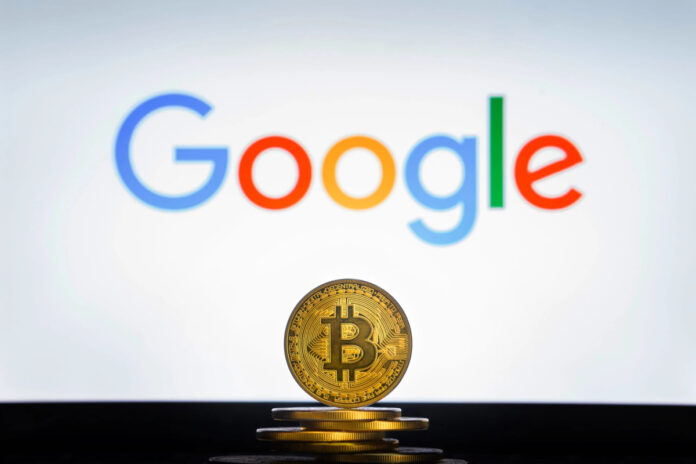In a significant move, Google has begun indexing Bitcoin blockchain data into its search engine results. Users can now search for Bitcoin addresses and see transaction details directly in Google searches.
NEW: Google has recently started indexing #Bitcoin data into their search engine 👀
Huge Development 👏 pic.twitter.com/hIAJfLkYXh
— Bitcoin Magazine (@BitcoinMagazine) March 28, 2024
This integration comes after years of Google’s rocky relationship with Bitcoin. The tech giant banned Bitcoin-related ads in 2018 before reversing course in January 2024 and allowing Bitcoin ETF ads after their approval earlier this year. The policy change signaled Google’s warming stance.
Now, displaying Bitcoin data in search results greatly expands public access to on-chain activity. With Google processing over 3.5 billion searches daily, basic Bitcoin blockchain data is now conveniently available alongside standard web results.
Currently, Google is allowing three address formats – P2PKH, P2SH, and Bech32. When searching any of these Bitcoin public addresses, users will see the current balance, its last update and the balance as of the last transaction.
The move is significant given Google’s vast global user base. Mainstream Bitcoin adoption depends partly on accessible tools for exploring and understanding the Bitcoin blockchain, and Google search democratizes this capability to some extent.
However, while Google is taking steps toward mainstream adoption, privacy-focused Bitcoin advocates have raised concerns. As Wasabi Wallet commented on X, “Now think about what it means for Google to be indexing all of Bitcoin transaction activity. Google has so much extra data they can link to your stack.”
Since the Bitcoin blockchain is public, Google displaying balances and transactions does not reveal any non-public information. But it does centralize and surface data that was previously more obscure. This has worried Bitcoiners who prefer to minimize exposure and maintain privacy.
Nonetheless, Many Bitcoiners are applauding Google for the incremental integration. By surfacing primary data alongside standard results, Google has opened the door to broader on-chain literacy. If adoption continues growing, more comprehensive indexing may be close behind.
Credit: Source link






















 Bitcoin
Bitcoin  Ethereum
Ethereum  Tether
Tether  Solana
Solana  XRP
XRP  Dogecoin
Dogecoin  USDC
USDC  Lido Staked Ether
Lido Staked Ether  Cardano
Cardano  TRON
TRON  Avalanche
Avalanche  Shiba Inu
Shiba Inu  Wrapped stETH
Wrapped stETH  Wrapped Bitcoin
Wrapped Bitcoin  Toncoin
Toncoin  Sui
Sui  WETH
WETH  Bitcoin Cash
Bitcoin Cash  Chainlink
Chainlink  Pepe
Pepe  Polkadot
Polkadot  LEO Token
LEO Token  Stellar
Stellar  NEAR Protocol
NEAR Protocol  Litecoin
Litecoin  Aptos
Aptos  Wrapped eETH
Wrapped eETH  Uniswap
Uniswap  USDS
USDS  Cronos
Cronos  Hedera
Hedera  Internet Computer
Internet Computer  Ethereum Classic
Ethereum Classic  Bonk
Bonk  Bittensor
Bittensor  Render
Render  Ethena USDe
Ethena USDe  WhiteBIT Coin
WhiteBIT Coin  POL (ex-MATIC)
POL (ex-MATIC)  Dai
Dai  Artificial Superintelligence Alliance
Artificial Superintelligence Alliance  MANTRA
MANTRA  dogwifhat
dogwifhat  Arbitrum
Arbitrum  Monero
Monero  Stacks
Stacks  OKB
OKB  Filecoin
Filecoin 
